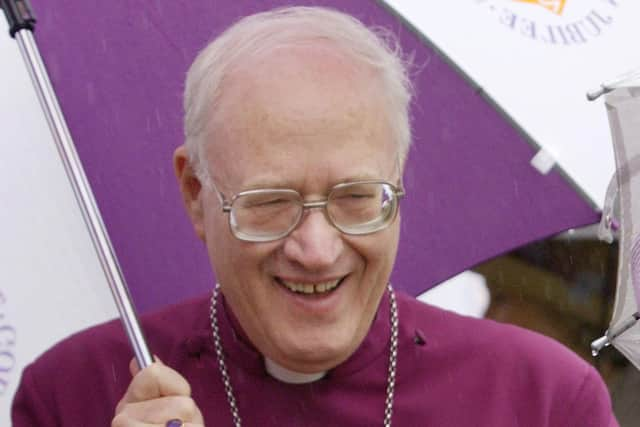Northern Ireland churches reject euthanasia or assisted dying after statements from George Carey and Church of Scotland
and live on Freeview channel 276
Last week the Church of Scotland said its commissioners had voted to re-examine its traditional opposition to euthanasia.
The debate comes as the Assisted Dying for Terminally Ill Adults (Scotland) Bill is introduced to the Scottish Parliament for debate.
Advertisement
Hide AdAdvertisement
Hide Ad(The church is traditionally seen as the mother church of the Presbyterian Church in Ireland, which cut ties with it in 2018 after it approved same sex marriages).


On Monday this week, former Archbishop of Canterbury George Carey also called on the UK government to set aside time for debate on a law to allow assisted dying.
Directly opposing the official view of the Church of England, Lord George Carey told MPs it was an “act of great generosity, kindness and human love” to help dying people to end their lives.
However, Anglicans and Presbyterians in Northern Ireland argued that governments must provide quality palliative care instead.
Advertisement
Hide AdAdvertisement
Hide AdA spokesman for the Presbyterian Church in Ireland responded: “All life has immeasurable value and is a precious gift from God... The true measure of any society is how it treats its most vulnerable citizens."
The church's pastoral care teams support distressed people towards the end of life and are motivated by care for the individual, and always affirm "the essential dignity of life,” he said.
He noted that in 2018 the church's general assembly "voted overwhelmingly" to oppose euthanasia anywhere in the UK or Republic of Ireland.
In the same year, he said, the church strongly urged governments to resource quality palliative care - a call it reiterated yesterday.
Advertisement
Hide AdAdvertisement
Hide AdA Church of Ireland spokesman also said it too held that "each and every human life is intrinsically valuable".
He added. "The Church therefore remains committed to the view that there should not be a right to euthanasia. In this context, it is difficult to see how even the most sensitive legislation can do anything other than devalue human dignity."
Clergy across all denominations minister each day to people who are terminally ill, he added, and his denomination had also advocated for free and professional palliative care.
The church opposed the Republic of Ireland's Dying with Dignity Bill, proposed in the Oireachtas in 2020, he added. The bill is currently at the third stage in the Irish parliament.
Advertisement
Hide AdAdvertisement
Hide AdLisburn-based Dr Paul Coulter argued that "the sanctity of life is a distinctively Christian belief" which has resulted in modern concepts of human rights and universal healthcare.
He is Executive Director of the Centre for Christianity in Society, and is a medic, pastor and theologian.
"The evidence is clear that where terminally ill people are helped to make decisions about what treatments they wish to receive - and where excellent palliative care is provided - people are much less likely to ask for help to end their lives prematurely,” he said.
When political decisions are taken that some lives are "not worth living" he said, this opens the way for everyone else to ask if their lives are worth living.
Advertisement
Hide AdAdvertisement
Hide Ad"Evidence from countries where assisted dying has been permitted suggests that safeguards intended to protect the vulnerable have not been respected," he added.